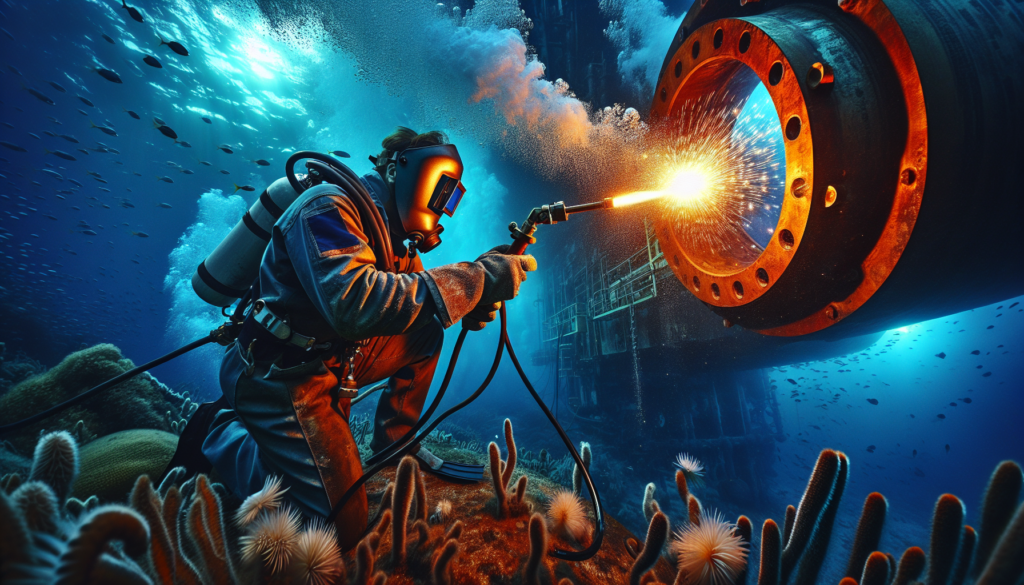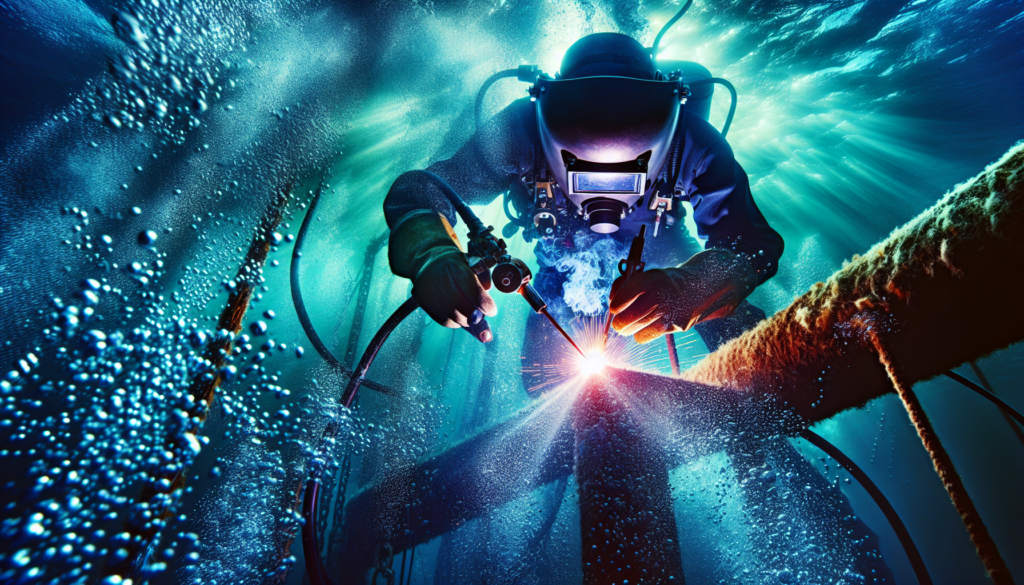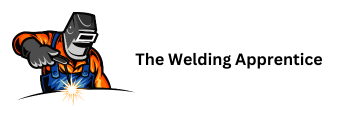Thinking about a career in underwater welding? Wondering about the potential pay? Look no further! In this article, we will delve into the world of underwater welding and explore the exciting opportunities it offers, including the attractive compensation you can expect. So, hold your breath and get ready to dive into the fascinating world of underwater welding and discover the financial rewards that come with it.

Pay for Underwater Welding
Underwater welding is a unique and challenging profession that combines diving expertise with welding skills. This article will explore the qualifications and training required, the demand for underwater welders, factors that affect pay, types of underwater welding jobs, commercial diving companies, the offshore oil and gas industry, shipbuilding and repair, and finally, salaries and pay scales.
What is Underwater Welding?
Underwater welding is a specialized field that involves joining metal structures underwater. It plays a crucial role in various industries such as offshore oil and gas, shipbuilding and repair, and underwater construction. The welding is performed using advanced techniques and specialized equipment, ensuring that the welds are strong and durable even under extreme conditions.
Underwater welding can be performed through various methods, including wet welding, dry welding, hyperbaric welding, arc welding, and spot welding. Wet welding involves welding directly in the water, while dry welding is conducted in a controlled environment, such as a dry chamber or habitat. Hyperbaric welding, on the other hand, combines both wet and dry welding techniques, utilizing a hyperbaric chamber to create a sealed environment. Arc welding and spot welding are specific techniques used for certain applications.
Qualifications and Training
To become a qualified underwater welder, one must possess both diving and welding certifications. Diving certification ensures that the individual is trained in the proper techniques and safety procedures for working underwater. This certification is often obtained through organizations like the Professional Association of Diving Instructors (PADI) or the National Association of Underwater Instructors (NAUI).
Welding certification is also essential in underwater welding. It demonstrates that the individual has received proper training and has mastered the necessary welding techniques. Certification programs typically follow guidelines set by organizations such as the American Welding Society (AWS) or the International Institute of Welding (IIW). These programs cover a range of welding processes, including shielded metal arc welding, gas tungsten arc welding, and flux-cored arc welding.
In addition to diving and welding certifications, underwater welders may need to undergo additional training and acquire specialized skills. These may include courses in underwater cutting techniques, underwater inspection, and non-destructive testing. Knowledge of marine construction, underwater electrical systems, and mechanical skills are also valuable assets in this field.
Experience plays a significant role in underwater welding careers, and specialized specializations can enhance earning potential. Underwater welders often start as assistants or apprentices, working alongside experienced welders to gain practical experience. Over time, they can specialize in specific areas such as pipeline welding, offshore rig maintenance, or ship hull repair.
Demand for Underwater Welders
The demand for underwater welders has been steadily growing, driven by expanding industries and infrastructure projects. Underwater welding is essential in various sectors, including offshore oil and gas exploration, shipbuilding and repair, and underwater construction and infrastructure development.
The offshore oil and gas industry relies heavily on underwater welders for installation and maintenance of platforms, pipeline welding, and underwater inspection and repair. As offshore exploration expands into deeper waters, the need for skilled welders capable of working at significant depths is increasing.
Shipbuilding and repair also require the services of underwater welders. Dry docks and shipyards often utilize these professionals for hull repairs, maintenance, and inspections. Underwater welding is critical in ensuring the structural integrity of ships and naval vessels. Specialized equipment and techniques are used to weld various materials, including steel and aluminum, in the challenging underwater environment.
In addition to these industries, there are opportunities for underwater welders in underwater construction and infrastructure projects. These may include building bridges, tunnels, dams, and other underwater structures. The need for underwater welders in these projects is driven by the necessity to provide strong and dependable welds that can withstand the harsh underwater conditions.
Furthermore, the demand for underwater welders is not limited to a specific geographic location. As industries and infrastructure projects expand globally, there are international opportunities for experienced underwater welders to work on projects around the world.

Factors Affecting Pay
Several factors can influence the pay of underwater welders. These factors include experience and expertise, certifications and skills, project complexity and risks, location and travel requirements, and company reputation and size.
Experience and expertise are among the primary factors that affect pay. As welders gain more experience in the field, their skills and knowledge improve, making them more valuable to employers. Welders with a proven track record of successful projects and specialized expertise in a particular area of underwater welding can command higher wages.
Certifications and skills also impact pay. Welders who possess a wide range of welding certifications and additional specialized skills have an advantage in the job market. These certifications and skills demonstrate the welder’s commitment to professional development and knowledge of the latest welding techniques and technologies.
Project complexity and risks play a crucial role in determining pay rates. Welders who work on highly complex projects or in hazardous environments often receive higher compensation due to the increased challenges and risks involved. Welding in deeper waters or in adverse weather conditions requires additional precautions and expertise, warranting higher pay.
Location and travel requirements are significant factors in underwater welding pay. Welders who are willing to work in remote or offshore locations, where the demand for their services is high, may receive additional compensation for their willingness to travel and work in challenging environments.
Company reputation and size can also impact pay rates. Established and reputable companies that handle high-profile projects typically offer more competitive compensation packages than smaller or lesser-known firms. Reputation often reflects the quality of projects and the company’s commitment to safety and excellence, making them more attractive to experienced welders.
Types of Underwater Welding Jobs
Underwater welding encompasses various job types, depending on the specific techniques and applications involved. Some of the common types of underwater welding jobs include wet welding, dry welding, hyperbaric welding, arc welding, and spot welding.
Wet welding involves performing welds directly in the water. It is a commonly used method in shallow water or situations where dry welding is not feasible. Welders using wet welding techniques require specialized electrodes that can maintain an arc underwater and ensure high-quality welds.
Dry welding, as the name suggests, is conducted in a controlled environment away from water. Dry chambers or habitats are used to create a sealed space where welders can perform their work without the presence of water. Dry welding provides better control over the welding process and ensures higher-quality welds.
Hyperbaric welding combines wet and dry welding techniques, making use of a hyperbaric chamber. This chamber allows welders to work in a dry environment at depths where water pressure is too great for dry welding alone. The hyperbaric environment offers additional protection and control over the welding process.
Arc welding is a commonly used technique in underwater welding. It involves using an electric arc to create the heat necessary for welding. Different variations of arc welding, such as shielded metal arc welding (SMAW) and gas tungsten arc welding (GTAW), are employed depending on the specific project requirements.
Spot welding is a specialized form of underwater welding used for joining small metal components together. It involves the use of electric resistance to create rapid and localized heat, resulting in quick and efficient welds. Spot welding is often used in industries such as automotive manufacturing and electronics.
Commercial Diving Companies
Commercial diving companies play a significant role in providing employment opportunities for underwater welders. These companies specialize in offering a range of services, including underwater welding, inspections, maintenance, and construction, to various industries.
Underwater welders employed by commercial diving companies have a wide range of roles and responsibilities. They may be involved in welding and repairing structures underwater, conducting inspections and assessments, operating specialized equipment, and ensuring the safety and security of dive operations.
The salary range for underwater welders employed by commercial diving companies can vary depending on factors such as experience, certifications, and the company’s size and location. Entry-level positions often start with competitive salaries, with the potential for salary increases as experience and expertise are gained. Promotion opportunities within the company can also lead to higher-paying positions.
Offshore Oil and Gas Industry
The offshore oil and gas industry is a significant employer of underwater welders. This industry depends on skilled welders for numerous tasks, including platform installation and maintenance, pipeline welding, and underwater inspection and repair.
Platform installation and maintenance involve welding and fabricating various structures, such as platforms, rigs, and oil storage tanks, in offshore locations. Underwater welders play a crucial role in ensuring the stability and structural integrity of these installations.
Pipeline welding is another important application in the oil and gas industry. Welders are responsible for connecting and repairing underwater pipelines that transport oil and gas to and from offshore platforms. The welding is performed under challenging conditions, including strong currents and variable temperatures.
Underwater inspection and repair is an ongoing requirement in the oil and gas industry. Welders are needed to conduct inspections, identify defects and damage, and perform necessary repairs to ensure the safe and efficient operation of underwater equipment and infrastructure.
Working in the offshore oil and gas industry presents unique hazards and challenges for underwater welders. These include exposure to harsh weather conditions, working at great depths, dealing with underwater currents, and the complexity of working on underwater structures. The industry follows strict safety standards and regulations to ensure the well-being of its workers.
Shipbuilding and Repair
The shipbuilding and repair industry also heavily relies on underwater welders for various tasks. Dry docks and shipyards employ welders to conduct hull repairs and maintenance, ensuring that ships are structurally sound and safe for navigation.
Dry docks and shipyards provide controlled environments for underwater welders to perform their work. Welders use specialized equipment, including diving helmets and dry chambers, to create a dry atmosphere and access the areas that require welding. This allows for better control over weld quality and performance.
Hull repair and maintenance are critical in the shipbuilding and repair industry. Underwater welders are responsible for repairing damaged hulls, reinforcing weak areas, and ensuring that the structural integrity of the ship is maintained. Specialized welding techniques and knowledge of marine materials are essential for these tasks.
Underwater welders also play a vital role in naval applications, including the construction and maintenance of naval vessels. These specialized welders possess the skills and expertise required to work on complex naval structures, ensuring that they meet the rigorous standards and specifications of naval forces.
Salaries and Pay Scales
The salaries and pay scales for underwater welders can vary depending on several factors, including experience, industry, location, and employer. However, underwater welders generally enjoy competitive salaries due to the unique nature of their work and the specialized skills required.
According to data from the Bureau of Labor Statistics, the average annual wage for welders, cutters, and welder fitters was $45,190 as of May 2020. However, underwater welders’ salaries can significantly exceed this average due to the additional training and expertise required for their unique profession.
Entry-level pay for underwater welders can range from $30,000 to $50,000 per year. As welders gain more experience and expertise, their salaries can increase significantly. Highly experienced underwater welders working in top-paying industries can earn salaries well over $100,000 per year.
The top-paying industries for underwater welders often include offshore oil and gas exploration, shipbuilding and repair, and underwater construction. Companies within these industries value the skills and expertise of underwater welders and are willing to offer competitive salaries to attract and retain top talent.
International salary variances are also worth considering. Salaries for underwater welders can differ significantly depending on the country and region in which they are employed. Factors such as cost of living, local demand, and scarcity of skilled welders can all influence pay rates.
In conclusion, underwater welding offers exciting career opportunities for those with a passion for diving and welding. With the right qualifications, training, and experience, underwater welders can enjoy competitive salaries and a wide range of job opportunities. The demand for these skilled professionals continues to grow, driven by expanding industries and infrastructure projects. Whether in the offshore oil and gas industry, shipbuilding and repair, or underwater construction, underwater welders play a vital role in ensuring the integrity and safety of underwater structures around the world.
